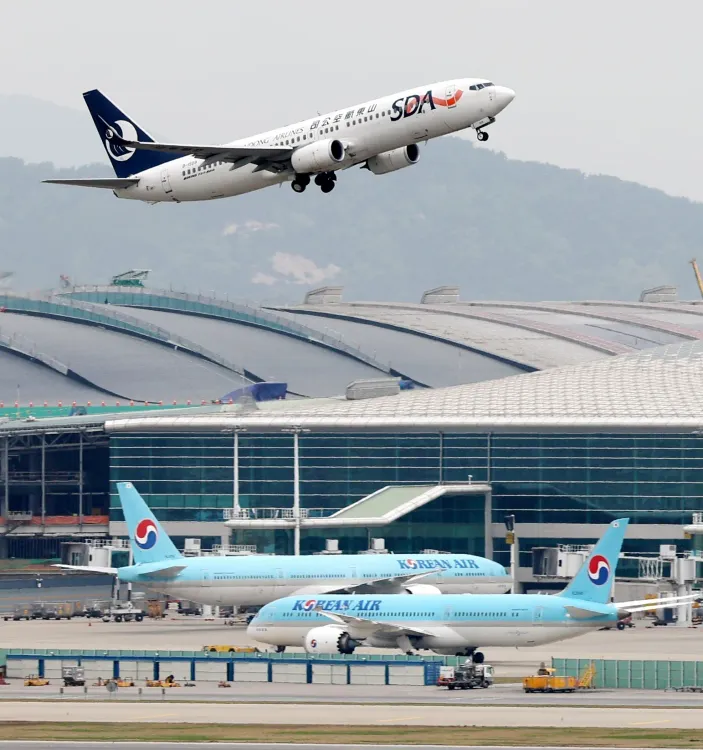South Korea Experiences Nearly 20% Surge in Air Passenger Traffic Due to International Travel

Seoul, Jan 12 (NationPress) South Korea's air passenger traffic has seen a significant increase from the previous year in 2024, almost reaching the levels recorded before the pandemic due to a surge in international travel, as evidenced by data released on Sunday.
The total number of airline passengers at South Korean airports exceeded 120 million, marking a rise of 19.5 percent from approximately 100.5 million recorded in 2023, according to the Ministry of Land, Infrastructure and Transport.
This figure corresponds to 97.3 percent of the record 123.36 million achieved in 2019. The passenger count had plummeted to 29.5 percent of that record in 2020 due to the COVID-19 pandemic, before rebounding to 81.5 percent of the 2019 numbers in 2023.
The remarkable growth last year was primarily driven by an increase in international travelers to and from South Korea, which soared by 30.2 percent year-on-year to around 88.9 million, while domestic flights saw a modest increase of 3.3 percent to 31.13 million during the same period.
When analyzing destinations, the volume of passengers traveling to and from Japan surged by 29.7 percent year-on-year, exceeding 25 million, likely benefiting from the depreciation of the Japanese yen.
Travelers to and from China increased more than twofold, reaching 13.77 million, up from 6.84 million in 2023. This boost was partially attributed to Beijing's unexpected decision in November to lift visa requirements for South Korean visitors, allowing them to stay in China for up to 15 days without a visa.
Additionally, air passenger traffic to and from other Asian nations rose by 22.7 percent year-on-year to 34.98 million, and traffic to and from the United States increased by 16.1 percent to 6.51 million, according to the data.
In terms of specific airports, passenger numbers at Incheon International Airport, South Korea's primary international gateway, surged by 26.8 percent year-on-year to over 70 million last year, while traffic at the airport located on Jeju Island more than doubled to 2.43 million.









